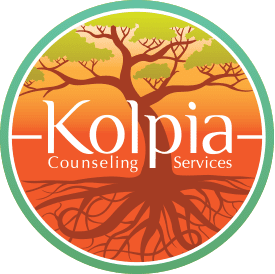Addiction is a broad term that can include individuals being addicted to drugs and alcohol to those who are addicted to over-the-counter or prescription medications. In life, it is possible to become addicted to nearly anything, as addictions trigger the release of endorphins and dopamine throughout the body, keeping individuals hooked and wanting more over time.
Common Addictions
 Some of the most common addictions include alcohol, prescription opioid medications, and street drugs ranging from heroin and methamphetamine to MDMA and cocaine. The rise of opioid prescription medications has become one of the most common addictions throughout the US alone, causing deaths and extreme dependence in short periods of time. When a drug is used, various chemicals are released in the brain, resulting in a “high” or an altered state of being.
Some of the most common addictions include alcohol, prescription opioid medications, and street drugs ranging from heroin and methamphetamine to MDMA and cocaine. The rise of opioid prescription medications has become one of the most common addictions throughout the US alone, causing deaths and extreme dependence in short periods of time. When a drug is used, various chemicals are released in the brain, resulting in a “high” or an altered state of being.
As individuals continue to use a drug or substance, the craving for endorphins and other chemicals such as dopamine continue to increase. Tolerance when using the substance also drastically increases, which is why some individuals who heavily rely on alcohol have trouble feeling “drunk” or inebriated even after drinking for an entire night. The more an individual consumes a substance, the higher their tolerance becomes, decreasing the overall effectiveness of the substance itself.
Managing Addiction with Inpatient and Outpatient Rehabilitation Programs
Managing addiction varies with the individual who is addicted to a substance based on their personality, history, and whether or not they have struggled with overcoming addictions in the past. With most individuals who are struggling with addictions, seeking out both individual therapy as well as group counseling sessions is always advisable. Talking with a professional therapist and getting the counseling you need, as well as participating in groups with other individuals dealing with similar struggles are ways to be supported while managing all types of addictions, regardless of the severity. There are also both inpatient and outpatient rehabilitation programs to choose from depending on your location and the type of sobriety program that works best for your lifestyle.
 Inpatient rehabilitation centers are optimal for individuals who have struggled with sobriety in the past and have a habit of forming new addictions. With an inpatient facility, patients are required to remain on the premises of the program’s facility itself throughout the entirety of the program.
Inpatient rehabilitation centers are optimal for individuals who have struggled with sobriety in the past and have a habit of forming new addictions. With an inpatient facility, patients are required to remain on the premises of the program’s facility itself throughout the entirety of the program.
Outpatient rehab programs and facilities are ideal for those who have addictions but are also committed to working full-time or caring for their family and household. When it is still possible to manage everyday responsibilities and work but you want to overcome a draw to any substance, an outpatient program complete with individual therapy, group counseling, and group support is highly recommended to maximize your efforts.
Understanding what it means to be addicted and how to go about getting help with managing an addiction is useful whether you are addicted to some substance or seeking help for a friend or loved one in your life. The more you understand addiction, the easier it becomes to seek out the necessary resources to get help and live life in a healthier, happier, and more fulfilling way.

Leave a Reply